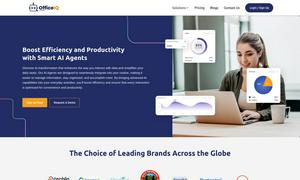LINQ Me Up

About LINQ Me Up
LINQ Me Up is a powerful tool designed for .Net developers, enabling rapid conversion between SQL and LINQ queries. It streamlines coding by utilizing AI technology for optimized results, allowing users to focus on critical coding tasks, thereby enhancing productivity and efficiency.
LINQ Me Up offers flexible pricing plans, including a monthly subscription at $4.99 and a popular yearly plan for $50, saving users about $9.88 annually. Each plan allows unlimited conversions, providing excellent value for developers needing frequent query transformations.
LINQ Me Up features a user-friendly interface that simplifies the conversion process. Its layout ensures seamless navigation through the tool's functionalities, including easy access to input submissions and result generations, making it practical for users focused on quick and efficient query transformations.
How LINQ Me Up works
To use LINQ Me Up, users begin by creating an account and choosing their desired conversion type—SQL to LINQ or vice versa. They simply paste their SQL or LINQ data into the provided input box, and the platform’s AI analyzes the request to generate an optimized output, which can be directly copied into their code.
Key Features for LINQ Me Up
AI-powered query conversion
LINQ Me Up's AI-powered query conversion is a standout feature that enables fast and accurate transitions between SQL and LINQ. This innovative process helps developers save significant time on coding tasks, allowing them to concentrate on more critical aspects of their projects.
Dataset-based LINQ generation
With LINQ Me Up, users can generate LINQ queries directly from various datasets, including XML, JSON, and POCO objects. This feature offers an efficient way to develop tailored queries, maximizing productivity and ensuring developers can work with dynamic data effortlessly.
User ownership of generated code
LINQ Me Up grants users complete ownership of all generated code, empowering developers to utilize or modify the output as needed. This independence encourages a responsible coding environment, as users can test and deploy their results confidently without concerns over shared or stored data.








